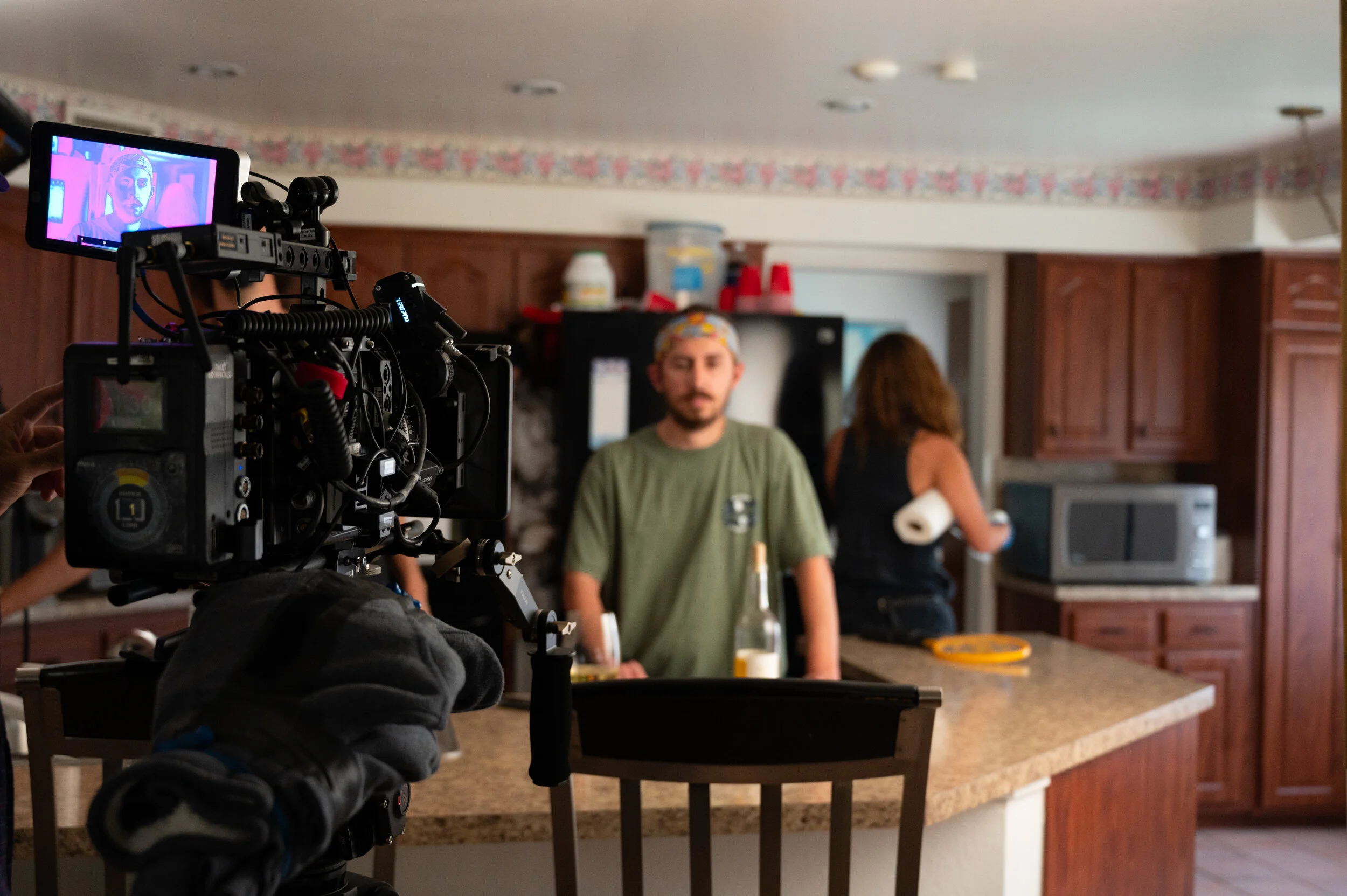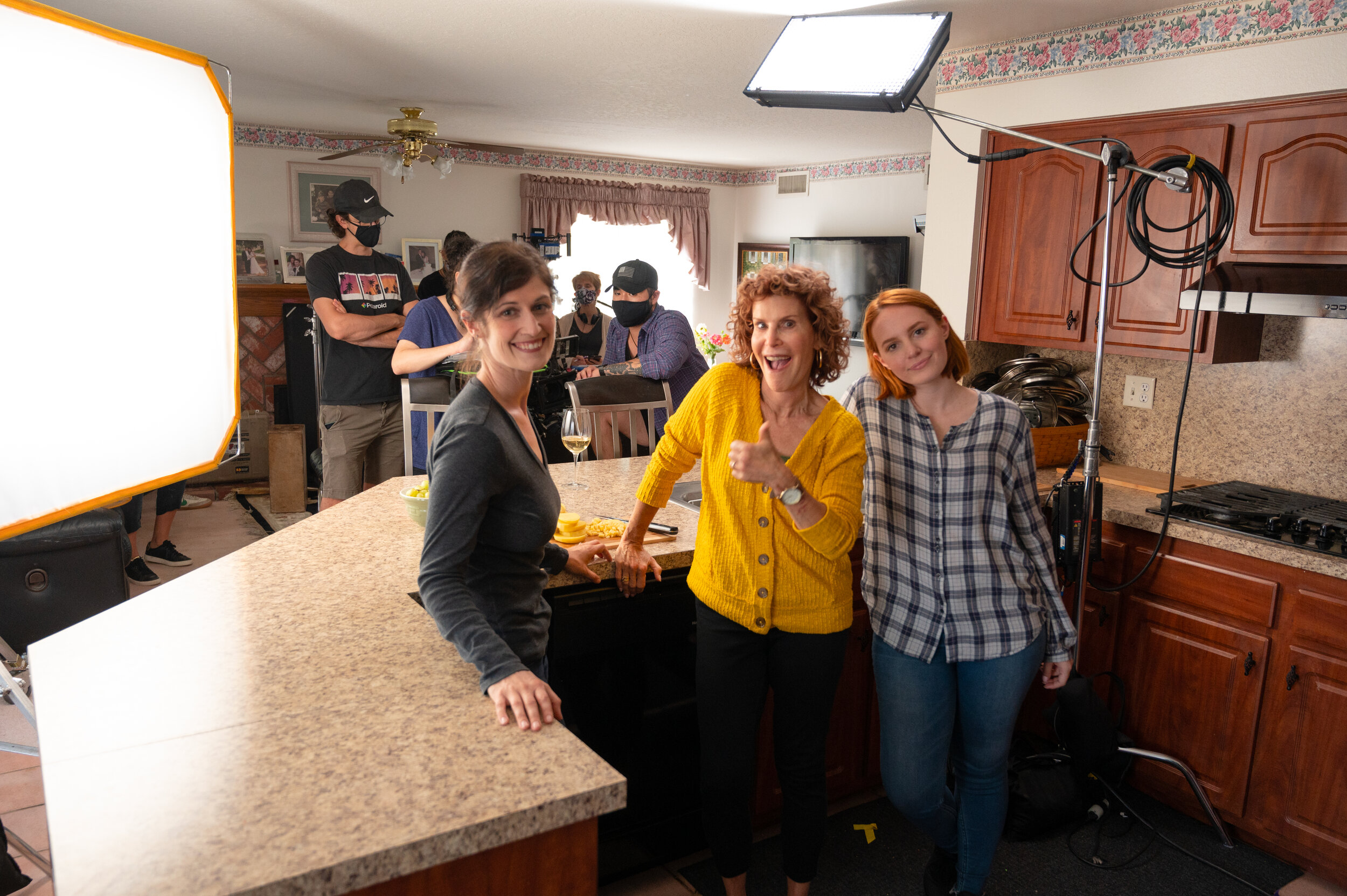It Happened.
Watching dallies now. Seeing the footage feels like experiencing images from a dream, rather than real-life staged action actually captured with a camera on the day. I didn’t sleep the night before the first day of shooting, and I’m sure the production suffered. I think the only way I got through it was thanks to a great team around me, including Charles Liu as Director of Photography and Lena Krivosheyeva as the 1st Assistant Director. We accomplished so many setups in such a short time, including shots that we took off our schedule initially and put back on because time allowed. I’m extremely grateful for everyone I was fortunate enough to work with on this short film, but I would be remiss if I didn’t credit Charles and Lena especially. I could not have made my days as successfully as I did, without their efficiency and skill.
I learned many lessons, some harder to swallow than others, but I’m grateful I had the opportunity to learn what I did, and hopefully there will be more opportunities down the road where I can put this knowledge to good use.
One thing I can say I learned has nothing to do with directing. Please fellow filmmakers, if you get a chance in pre-pro, think about your set design. It was only by luck that I was able to pull together some props that infused a meaningful splash of color into the important final scenes, but I had completely neglected the look of the kitchen, our primary set. Because of all the utensils we had in there and how much counter space was taken up by functional props, I figured that we had everything we needed to make it look like an actual kitchen. Instead I’ve wished so many times while watching dallies that I had focused on putting something around the stove to make it look more lived-in and homely (ironic, considering we shot in my parents’ actual kitchen).
I’m writing down all the filmmaking lessons as they come to me. This will help me remember what I need to do for next time, but I don’t know if there’s going to be a next time. It’s incredible hubris to think I’ll be able to do this again. The impracticality of financing a short film, without favors called in or adhering to a stringent budget, has hit me over and over again during the producing process. I wrote a ten page short film with three actors to be shot in my kitchen, that still required a cast and crew of eighteen total to be lit and shot properly, not including the personnel that will be required in post. We still needed a pile of lighting and camera equipment to get all the shots I’d envisioned, which had to be paid for. We still got a permit, even though we shot in my own house, to protect us in case the neighbors complained. Additional costs included the expense of feeding the production team for three full days — crafty and lunch.
How do people do this with low overhead? I feel like there’s some big secret to this that I haven’t figured out. Am I just an idiot? Possibly.
Anyway, with the footage now shot, Stephen and I are in the process of editing. There’s something I’ve forgotten about the editing process, which is probably fundamental to most experienced filmmakers. When you watch a shot and a cut that made its way into the film, you don’t think about the following:
the ten takes of that particular coverage
the five takes you liked that made its way to the timeline
the frames you added and removed from the beginning of that take as you conjoined it with the previous shot, and the frames that you added and removed from the ending of that take as you conjoined it with the next shot. You don’t think about all the times you replaced and removed frames to find that correct cut point. You generally have to experiment, by adding and removing frames at the beginning and end of a shot. You could do this five or six times for one shot, which could change again when you combine this footage with the next shot.
all the decisions that go into how and why you chose to conjoin the footage the way that you did. Was pacing the biggest influence? Capturing the essence of an actor’s reaction? Matching eyelines, hand movements?
Again, I am stating what is likely the obvious to experienced filmmakers. To some, this is probably the fun part. Stephen and I are about to tackle the meat of the dramatic portion of this movie tomorrow, and I am nervous as hell. I’m not even sure what I’m nervous about. We’re obviously going to get it done, but I think I forgot how this process sometimes becomes like looking for a portion of pencil lead in a pile of sand with a fine-toothed comb. It is a painstaking process, and I wouldn’t have it any other way, but I’ve forgotten how long editing takes. Mass respect to the Thelma Schoonmakers of the world, who used to do this on film, as well as the editors working for people like Fincher and Kubrick, who often request a ton of takes during shooting.
This film has caused me anxiety that I don’t remember happening with PreGame. Part of this is due to the financial cost of the film, and knowing now that very little is likely to come of this film after going through the festival circuit already. I also think this is due to the fact that this movie is incredibly personal on a level that PreGame wasn’t, and I’m going to feel like I let myself down if I don’t get this right when I have the chance to in the editing. I do know deep down that my only goal should be and is to make the best film possible. At the end of the day, it’s been a privilege to have this opportunity to direct again, and as a filmmaker, I don’t know if I really care about anything but making the best film I possibly can. That’s all I can really control, anyway.
One more thing: I still need to find the music. I don’t know what I was thinking with picking the music before we actually shot the film. Now that I’ve seen the footage, the music no longer fits and I have to somehow find new songs. If they don’t exist, I am screwed, though Stephen seems to think I’ll find something, and I take consolation in his faith when I get discouraged.
I’ll probably write more tidbits on the movie page later once the film gets released, but that’s all for now. Here’s hoping I get to do another one, but if I do, it would be so nice to have some help on the producing end. I was way, way off-base to think that producing this film would be similar to producing the last one. Every film has unique challenges that you can’t anticipate, and I was blindsided by problems that arose that didn’t happen on my last project. Not sure what I was thinking, but this was also a hell of a lesson to learn, and I’m only glad that my baseline health was enough to prevent a heart attack during the constant surprises that happened during pre-pro.







